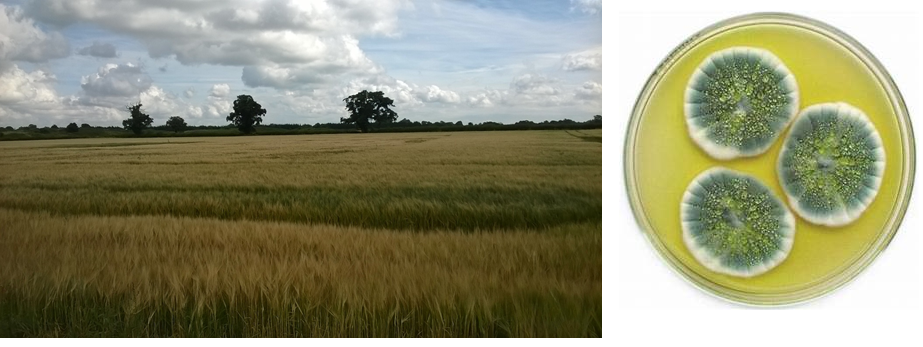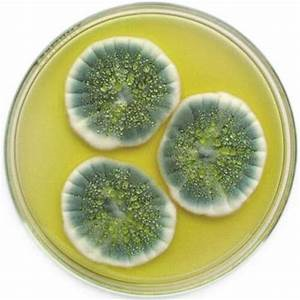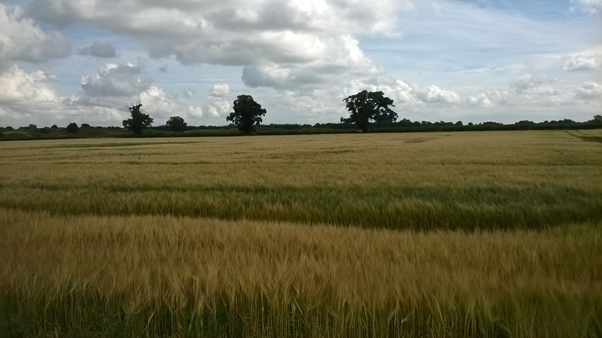- Endophytes for Sustainable Agriculture - 10/11/2020

Food security is crucial to society. Today, the challenge is not just producing enough food globally (and distributing it), but to produce it sustainably and ensure long-term food security for society. Our work in the Trinity Botany Department (in collaboration with UCD) is all about developing more sustainable agricultural practices using endophytes.
An introduction in the secret world of the endophytes and their application in agriculture

Endophytes are a class of plant-associated microorganisms that have shown particular promise in agriculture. Endophytes (bacteria, fungi and unicellular eukaryotes) live at least part of their life cycle inter- or intracellularly inside plants, usually without inducing pathogenic symptoms. Endophytes can have several effects on plants and may change function during their life-cycle. Many bacterial and fungal endophytes are known to enhance abiotic and biotic plant stress tolerance and show real promise as crop inoculants.
We have been working with endophytes for over eight years and continue to discover new aspects of their relationships with plants. We focus mainly on barley as this is the largest crop in Ireland, but we have also investigated endophyte relationships with other crops such as strawberry, lettuce, wheat, oat, tomato, and forage grasses. Our research has revealed several beneficial aspects of endophytes that have potential to improve agricultural sustainability: we have discovered endophyte that can help to reduce chemical inputs to crops (i.e. reduce the need for pesticides), enhance crop yields, and even contribute to pathogen resistance! [1–4]

Making Research a Reality
Results from our research have been very encouraging and we have published extensively on the topic. However, we are also keen to see the fruits of our work (so to speak) in action. Funding for our research has come from Science Foundation Ireland and Enterprise Ireland, and this has resulted in two patent filings (through TCD and UCD) related to our discoveries. We are now in the process of commercialising our endophyte technology with the support of Enterprise Ireland, who have fast-tracked us into their High-Performance Start-Up (HPSU) programme to develop a technology to make agriculture more sustainable and profitable. We have also recently partnered with UCD, NUIG, and Teagasc in a new multi-disciplinary research programme, funded by DAFM, which will continue our discovery pipeline for beneficial endophytes for barley.
Current and planned restrictions on chemical crop inputs mean that alternative methods of crop treatment are needed and this will present difficulties for farmers. We believe that the bio-based technology we have developed will form part of the solution. Agriculture is facing many problems due to unsustainable practices and the effects of global warming, but we think that restoring the natural endophyte partners to agricultural crops will enable a more sustainable future for farming.
1. Murphy, B.R.; Doohan, F.M.; Hodkinson, T.R. A seed dressing combining fungal endophyte spores and fungicides improves seedling survival and early growth in barley and oat. Symbiosis 2017, 71, 69–76, doi:10.1007/s13199-016-0418-7.
2. Murphy, B.R.; Jadwiszczak, M.J.; Soldi, E.; Hodkinson, T.R. Endophytes from the crop wild relative Hordeum secalinum L. improve agronomic traits in unstressed and salt-stressed barley. Cogent Food Agric. 2018, 4, 1–10, doi:10.1080/23311932.2018.1549195.
3. Murphy, B.R.; Soldi, E.; Jadwiszczak, M.J.; Trevor, R. Synergy between fungal endophytes improves fruit production in strawberry cultivar. emergent Life Sci. Res. 2019, 5, 29–41.
4. Soldi, E.; Casey, C.; Murphy, B.R.; Hodkinson, T.R. Fungal endophytes for grass based bioremediation: An endophytic consortium isolated from agrostis stolonifera stimulates the growth of festuca arundinacea in lead contaminated soil. J. Fungi 2020, 6, 1–15, doi:10.3390/jof6040254.
